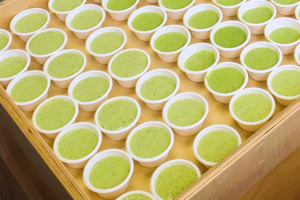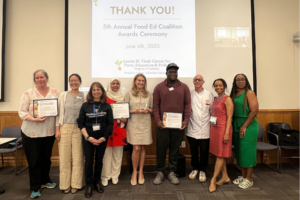By Be-Roll | Published December 19, 2022
Teens for Food Justice brings state-of-the-art hydroponic farms to schools in New York and Colorado. The organization works to end food insecurity, increase access to healthy food, and teach students about green farming technology. TFFJ uses schools as centers of community to bring together regenerative farming, hydroponics, and unique agricultural practices that give back to the area. Learn more here!
For people who don’t know much about the impact of food insecurity, can you tell me about the need for your programs?
Food insecurity is a condition in our society where people live in communities where their access to affordable, healthy food is limited. It’s difficult for people in these areas to feed themselves and their families nutritiously, and they don’t have access to culturally relevant foods. These conditions exist at a high rate in our country and were only exacerbated by the pandemic. The other side is diet related disease, which can be directly pinned to food insecurity. Obesity, heart disease, diabetes and food insecurity are closely linked. Food insecurity affects over 30 million Americans and 13 million children, which are alarming statistics.
How does student-grown produce affect minds, bodies, and communities?
Each of our farms can grow up to 10,000 pounds of produce each year. The farm is integrated in the curriculum in STEM classes, where students learn about environmental science through the lens of growing food in a cutting-edge, green-tech way. In after school programs, students learn about healthy nutrition and the value of eating a plant based diet. It’s hands-on, project based learning that puts these science lessons into effect for social good. They learn about the food systems in their areas and why some of the structural, racist policies that lead to food insecurity exist. In the process, students learn how to advocate for change.
How does the distribution process work?
The food is distributed every day in the cafeteria, and students also distribute the food with community partners into the city. We are really focused on building strong community partnerships. When we come into a school or campus, we work with local officials to connect with organizations that are already embedded in the community on the ground. All of our farms are grow-to-order, and we work with three different partners that distribute our food to residents. We also do campus distributions, where families can sign up to receive free produce.
How does working on a TFFJ farm benefit students?
Students are so affected by the farm in such a short period of time. They have spoken before the City Council on bills that deal with food and health. Hydroponic farms use 10% of the water that traditional farming uses; it’s empowering for students to learn about this technology. By working in farms and learning how to grow produce, students understand the value of having healthy food and the impact it has on a community. It contributes to their leadership skills and confidence. It’s amazing to watch the students recognize that they have the power to make a difference and ignite change, and hearing them speak their truth about these issues is so exciting.
Find the original article here in B-Roll.







